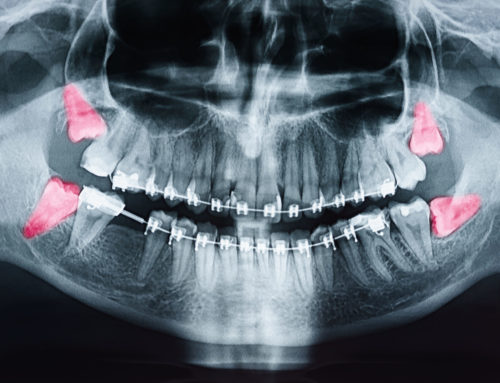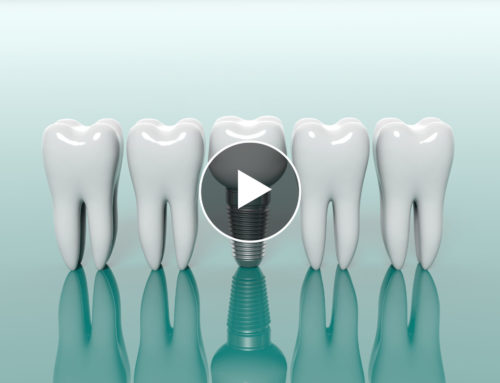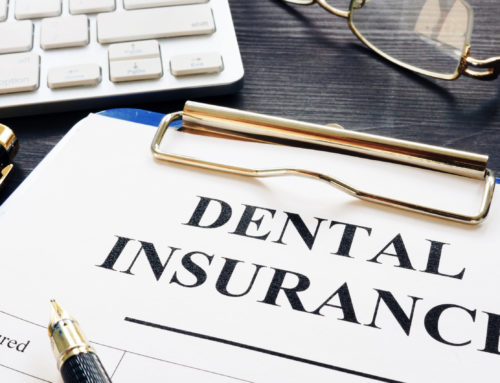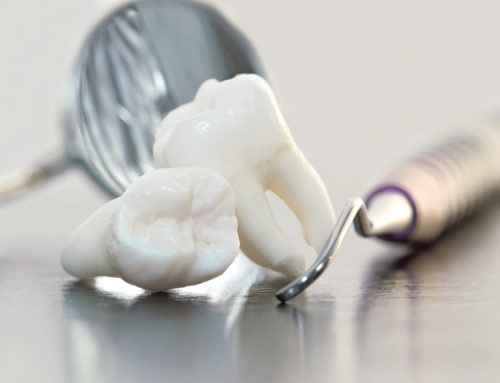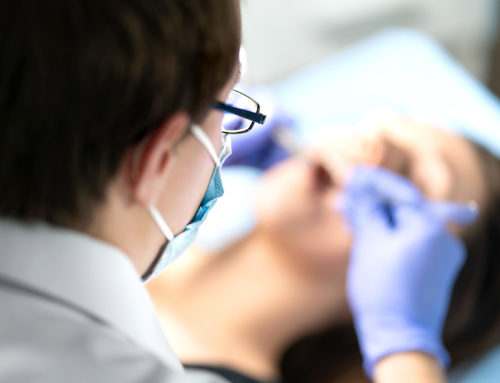The medical term “halitosis†refers to the common condition we all know as bad breath. Unfortunately, nearly half of American adults will have to deal with halitosis at some point in their life. The other bad news – and perhaps the most embarrassing – is that most people who have bad breath may not even know it! In this informative article, we tackle the causes of halitosis, along with some important oral care and hygiene tips to help keep your mouth fresh. So, give yourself a quick personal breath check and then read on – or grab a mint first!
Be Aware of the Causes
There are six common causes of clinical halitosis; and fortunately, all of them are treatable with oral care. In fact, many of the remedies will require a little discipline and consistent oral care on your part. Though most of the causes of bad breath, however, stem from dental issues.
1. Poor Dental Hygiene
No doubt, the #1 cause of halitosis is poor dental hygiene. Each time we eat, millions of naturally occurring bacteria collect in our mouth from food particles. If the bacteria are allowed to stay in our mouth, they quickly begin to break down and release distinctive odors. When people don’t brush their teeth regularly, floss, and rinse, the odors that are released are exacerbated.
2. Tooth Decay & Gum Disease
When bacteria continues to build up in your mouth, they begin to do further damage. Eventually, you’ll experience cavities and tooth decay, gingivitis, and other forms of gum disease. This film of bacteria, also called plaque, is the culprit of tooth decay and gum disease. However, good oral care and hygiene practices help remove plaque from teeth, gums, your tongue, and all areas of the mouth.
3. Dry Mouth
There are times when glands may not produce enough saliva in our mouth. Saliva is crucial to consistently washing out the mouth 24/7, and for helping to remove plaque bacteria. If we don’t have enough saliva, we have the condition known as dry mouth. Most people with dry mouth have it due to taking certain prescription medications, breathing through their mouth, and/or glandular problems.
4. Medical Conditions
Certain medical conditions can also affect our breath and oral care. For example, if you have diabetes, oral cancers, liver, or kidney disease, it’s important to ensure that it’s well-managed. However, once you receive regular treatments and your doctor helps keep these conditions under control, proper oral care can also be well-maintained.
5. Foods
Everyone knows the outcome that onions, coffee, and garlic can have on our breath and social interactions. Yet, when we consistently consume these types of food items without brushing or rinsing, our mouth can have a very unpleasant odor. Prayerfully, if we have good friends and family members around, they’ll inform us that we need to quickly deal with our breath.
6. Tobacco Products & Smoking
For people who smoke and use tobacco products, there’s also a significant chance that they’re dealing with halitosis. These products not only stain teeth and promote halitosis, but they also put users at risk for a host of other health problems. Smoking can irritate gums and oral tissues which contributes heavily to gum disease.
Know the Signs & Symptoms
If you can smell the odor from a belch, your mouth may already smell the same way. Also, if you frequently experience unpleasant tastes in your mouth after eating strong-smelling foods and drinks, you could have halitosis. When you smoke, be aware that you will frequently have smoker’s breath. If you begin to notice an increase of mouth dryness or changes in your general health or dental conditions, see a practitioner right away. Often times, when patients go see their doctor or oral care specialist, they can discuss more serious issues that could be the causes of halitosis.
Oral Care & Treatment Options
The best thing anyone can do as a first-line-of-defense in preventing bad breath is to practice proper oral care. It’s vital that we brush our teeth and tongue, rinse, and floss each and every day. If you’re practicing good oral hygiene and still have bad breath or dry mouth, you should see a dental specialist right away. In some cases, your underlying problem could be a developing medical condition that requires professional care.
For smokers, it’s important to seek help in an effort to eventually kick the habit. And if you love to eat or drink things that you know will cause bad odors, be sure to take care of your teeth and mouth right after consumption. Also, drink plenty of water after eating foods and drinking coffee, alcohol, or sugary beverages. These simple oral care practices can help prevent plaque bacteria from building up in your mouth.
Lastly, if you’re dealing with medical health conditions, it’s best to seek professional treatments and see your care all the way through. Most medical professionals and dental practitioners will provide tips, OTC treatment solutions, and clinical rinses to help fight bad breath. Fortunately, many doctors can also make simple adjustments to your prescription medications to help reduce the risk of halitosis. At the same time, your teeth and gums can improve while you’re on the road to recovery.
Seeing an Experienced Dental Practitioner
If you’re dealing with halitosis, it may not be due to negligence, but to not knowing proper oral care practices. An oral surgeon or dentist is the best person to consult with about fighting bad breath. He or she will be able to prescribe the right treatment solutions to deal with your particular condition.
For more serious issues, like missing teeth, oral cancers, or dental trauma, your general dentist will refer you to an elite dental practitioner. The oral maxillofacial surgeons of OMSH are such practitioners. We specialize in intricate and complicated surgeries and procedures pertaining to the dental and oral tissues of the mouth. At the same time, if you need a permanent solution for missing teeth, we’re the specialists to see for dental implants.
Give us a call to learn more at 832-509-4505.


